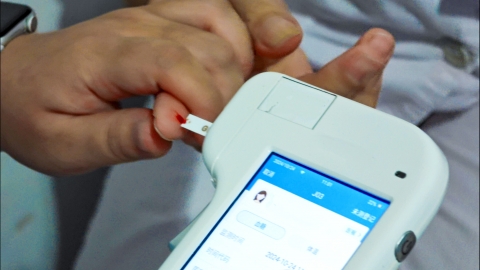What is stress-induced hyperglycemia?
Generally, stress-induced hyperglycemia may be caused by factors such as intense emotional fluctuations, severe trauma, postoperative stress response, acute pyelonephritis, and Cushing's syndrome. It is recommended to seek timely medical attention, identify the underlying cause, and undergo symptomatic treatment under a doctor's guidance. Detailed analysis is as follows:

1. Intense Emotional Fluctuations: Strong emotional stimuli such as extreme tension and fear can cause excessive secretion of glucose-raising hormones like adrenaline and glucocorticoids in the body, leading to a temporary increase in blood sugar levels. Blood sugar levels can gradually return to normal once emotions stabilize. Learning emotional regulation, relieving tension through deep breathing or listening to music, avoiding prolonged high-pressure states, and regularly monitoring blood glucose levels are recommended. No specific hypoglycemic treatment is usually required.
2. Severe Trauma: Serious injuries such as fractures or burns place the body in a state of stress, increasing the secretion of glucose-raising hormones and inhibiting insulin function, which leads to elevated blood sugar levels. Blood sugar levels usually return to normal after the injury heals. Active cooperation with trauma treatment, controlling sugar intake during nutritional supplementation, and short-term use of insulin aspart injection under medical guidance for significantly elevated blood sugar levels are recommended. The medication can be gradually discontinued after recovery.
3. Postoperative Stress Response: Surgical trauma and anesthetic stimulation increase the secretion of stress hormones in the body, causing temporary elevation of blood sugar levels shortly after surgery, which generally returns to normal gradually with physical recovery. Preoperative assessment of blood sugar levels, postoperative use of insulin glargine injection as directed by a physician, switching to oral hypoglycemic agents after resuming food intake, and enhanced postoperative care to promote recovery are recommended.
4. Acute Pyelonephritis: Bacterial infection causing inflammation of the renal pelvis can trigger an inflammatory response that stimulates the release of glucose-raising hormones, leading to elevated blood sugar levels. Symptoms may include fever, back pain, and frequent urination. Blood sugar levels typically decrease once the infection is controlled. Patients should follow medical advice to use anti-infective medications such as levofloxacin tablets, cefuroxime axetil tablets, and amoxicillin-clavulanate potassium tablets. Blood glucose should also be monitored, and metformin hydrochloride tablets may be used as an adjunct for glycemic control when necessary.
5. Cushing's Syndrome: Excessive secretion of adrenal cortical hormones leads to stress-induced hyperglycemia, often accompanied by central obesity, moon face, and hirsutism. Patients should follow medical advice to use medications such as bromocriptine mesylate tablets, ketoconazole tablets, and mitotane tablets to suppress hormone secretion. Adrenalectomy may be necessary in some cases, removing part of the adrenal tissue to reduce hormone secretion and control blood sugar levels.
In daily life, maintaining a regular routine, avoiding excessive fatigue, and enhancing physical resistance can help reduce stress factors. Patients with underlying conditions should regularly monitor their blood sugar levels and increase monitoring frequency during stressful periods to detect and address blood sugar changes promptly, avoiding long-term damage caused by sustained hyperglycemia.







